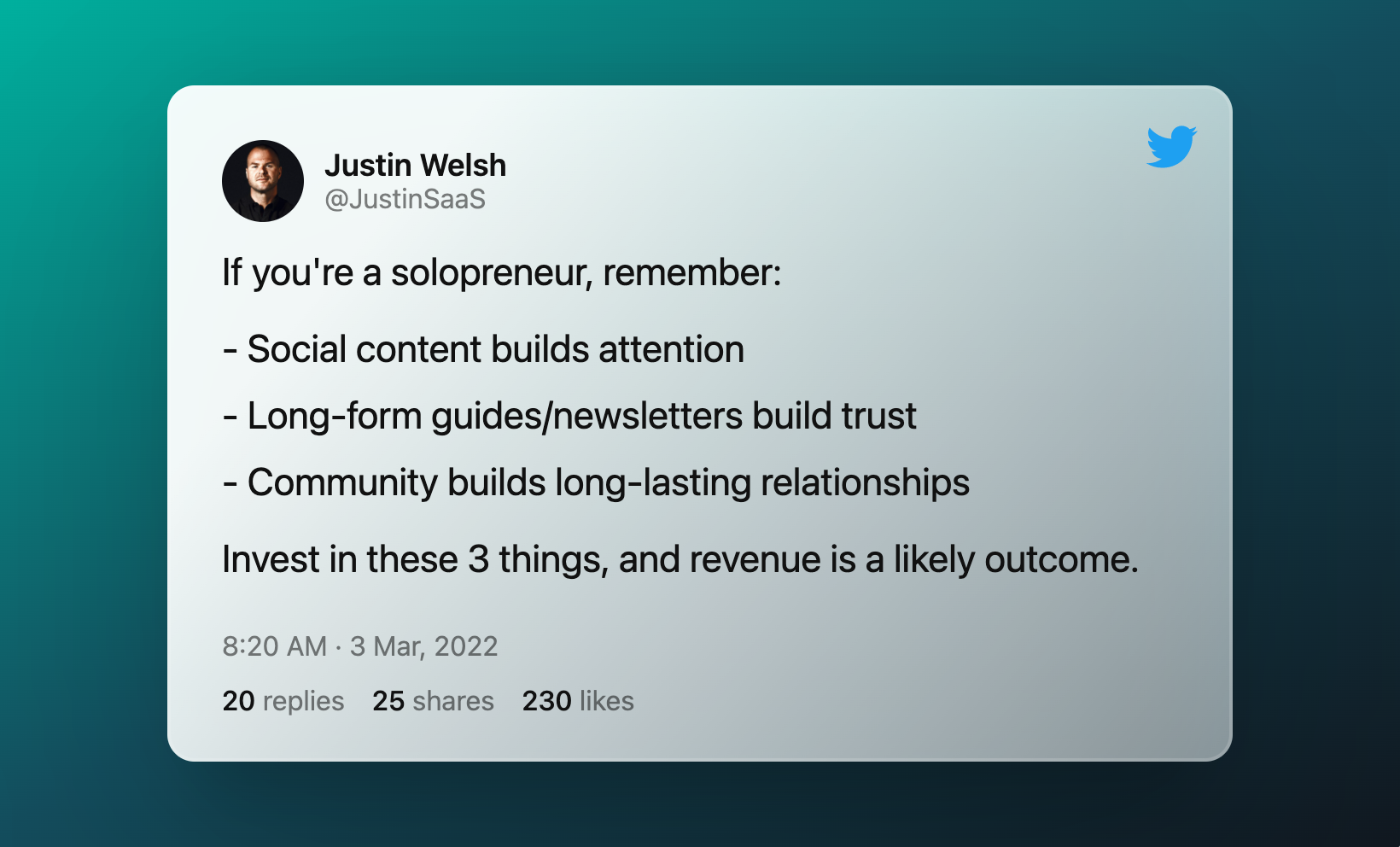🥇 Are you overcomplicating what it takes to win online?
Most of us do. We overcomplicate, overstrategize, and overwork ourselves into a frustrated frenzy because we think it has to be this way. It doesn't — and the following resources will help you see why.
💬 In this week's issue:
- Long-form. How creators are holding people's attention for hours on end.
- Mission vs. money. When building a business, which should you focus on first?
- Young & restless. Why making Gen Z consumers happy helps everyone win.
The video essay boom
Why hour-long YouTube videos are thriving in the TikTok era.

Attention is a tricky thing. It seems to follow trends, coming in waves, and shifting quickly from one popular item to the next. But even with how transient attention can be, there is one principle that holds true in every situation — and which can help you attract a committed audience: opposites win.
Cold - hot, left - right, dark - light. Our minds prefer to categorize things into yin and yang type groups, where the elements of one counter and balance the attributes of another.
As creators, we can use this to our advantage. Find where most of the attention is going and do the opposite.
This is why creators can have success posting 30-second TikTok videos OR a 2-hour and 18-minute YouTube video.
The point is — don't feel trapped by popular models, methods, or mediums. Create what only you can in the way you prefer, and watch the magic happen.
🗞 Latest tips & stories
- Substack creators are leaving the platform, again.
- New to using Stripe? Here are 7 tips to get started.
- Why AI's impact on news and creator businesses will grow.
- 8 ways to simplify your creative process (and get more done).
- How to write stories that stick.
Your mission won't pay the bills
We later realized that we need to tackle a real, specific problem that people is ready to pay for.

One of the most encouraging things about the creator economy, and the people like you who are taking part in it, are the reasons driving their creation.
Many creators have a strong why. Maybe it's fixing a problem that's bothered them for a long time, or connecting the dots between new technologies and overlooked opportunities, or it could be sharing stories that deserve to be told (and, thanks to the internet, can now be spread globally).
But a common mistake is to believe the mission-driven nature of your work will be enough to keep it alive. This is the misstep that entrepreneur Can Olcer made with their latest project. After three years of frustration, they moved on and offered the following advice to creators who may be in a similar situation.
Earning money and making the world a better place are not mutually exclusive. The better your business is, the more resources you'll have to make real change.
Gen Z craves quality news
They're reinventing the news for the generation that grew up on social media.

Gen Z consumers are digital natives that approach everything from work, to food, to entertainment with a different lens than the generations who preceded them. They're less afraid to question the status quo, less burdened by the way things should be, and more likely to create a solution if what they find isn't adequate.
This is why when Warren Nettleford saw how disconnected mainstream news was to what their peers wanted to watch, they decided to start their own media company. Here's Nettleford's advice for serving this growing portion of the market.
- Be more human. "Personality is everything on social media, which is partly why the formality of TV news feels out of place and does not translate to the everyday life of young people."
- Go to your audience. Nettleford decided to "publish exclusively on social media." Especially in the beginning stages, it's more effective to serve your audience where they already spend time (e.g., on social networks) instead of trying to lure them somewhere else to consume content.
- Quality content wins. The shorter attention span of younger audiences is mostly a myth. Rather, they have a higher bar for what they want to consume. Brevity is not a substitute for quality.
The best part is ALL of these factors will help you grow, regardless of the demographic your trying to reach.
👀 Curators pick

❤️ Enjoy this newsletter?
Forward to a friend and let them know where they can subscribe (hint: it's here).
Anything else? Hit reply to send us feedback or say hello.
Join the invite-only community! Connect with like-minded people who create content professionally. Fill out this form to get on the list!






